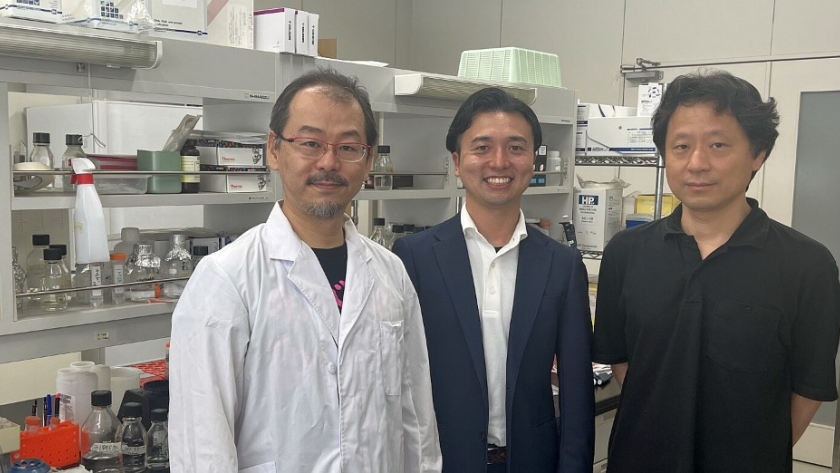
Por Agroempresario.com
Fermelanta, a Japanese biotech startup, has successfully raised JPY 2 billion ($13.6 million) in a Series A funding round to advance its microbial engineering platform for producing complex plant metabolites. The round was led by Universal Materials Incubator Co and Beyond Next Ventures, with additional contributions from Angel Bridge and other investors, including a grant from the Japanese government through the Deep Tech Startup Support Program. This funding brings Fermelanta’s total financing to JPY 4.8 billion ($32.5 million).
The company, founded in 2022 by Shogo Fukizaki and his team, specializes in engineering E. coli bacteria to produce high-value secondary plant metabolites, including alkaloids like morphine, codeine, and berberine. These compounds, traditionally extracted from plants, are costly and inefficient to produce due to their complex metabolic pathways. Fermelanta’s technology enables the introduction and expression of up to 20 heterologous plant genes in a single microbial cell, creating multi-step metabolic pathways previously unattainable in microbial systems.
Advances in synthetic biology have allowed microbial fermentation to produce many food ingredients, nutraceuticals, and pharmaceuticals more efficiently and sustainably. However, secondary plant metabolites—which include essential pharmaceutical and nutraceutical compounds—are still largely produced via plant extraction due to their enzymatic complexity.
According to Fukizaki, Fermelanta’s platform overcomes these limitations by reproducing plant enzymatic pathways in microbial cells. “Plant cell cultures are often difficult to engineer for industrial-scale production due to negative feedback systems. By using microbial cells, we can produce higher yields faster, using cheaper media, which is critical for mass production and cost reduction,” he explained.
Fermelanta’s platform is not limited to small molecules. The company aims to develop synthetic organisms capable of producing a wide range of compounds, from low to high molecular weight, with precise control over metabolic pathways. This flexibility allows them to target multiple industries, including pharmaceuticals, nutraceuticals, cosmetics, and food additives.
The $13.6M raised will be deployed across several strategic areas. Fermelanta plans to expand R&D pipelines, enhance scale-up capabilities from lab to pilot stages, and strengthen business development efforts. They aim to partner with Contract Development and Manufacturing Organizations (CDMOs) to scale multiple product pipelines, enabling production from tens of grams per batch at lab scale to hundreds of kilograms at pilot scale.
“We have established development capabilities for purification processes at laboratory and bench scales,” Fukizaki said. “Currently, we work with external CDMOs to scale production further, manufacturing from tens to hundreds of kilograms per batch, which allows us to serve research, sample, and industrial applications.”
The startup is constructing a pilot plant equipped with a 3,000-liter fermentation tank, expected to be operational by May 2026. This facility will enable Fermelanta to validate sample production and advance towards commercial-scale manufacturing, creating a new paradigm in bio-industrial production.
Fermelanta’s key innovation lies in introducing multiple plant genes into a microbial host to create complex metabolic pathways. Producing plant metabolites like benzylisoquinoline alkaloids requires intricate enzymatic sequences, often involving 40–50 gene steps. Traditional plant cell cultures face limitations in controlling these pathways efficiently.
“While constructing complex pathways in microbial cells was previously considered challenging, our approach has reached practical levels that outperform plant cell systems in many cases,” Fukizaki noted. The microbial method allows more rapid culture, precise control over production, and cost-effective scalability—advantages critical for industrial applications in pharmaceuticals and nutraceuticals.
Fermelanta, although newly founded, builds on 15 years of research at Ishikawa Prefectural University, with patents now transferred to the company. Its business strategy focuses on collaborative partnerships with CDMOs and research organizations to accelerate scale-up and market entry.
“Since our seed round in 2023, we’ve expanded our development pipelines and formed business alliances with multiple partners,” said Fukizaki. “Our team has grown significantly, which is a key value point for attracting top talent. We are focused on scaling up and validating samples to promote the development of a sustainable bio-industry.”
The company’s long-term vision is to create a platform capable of producing any desired compound through synthetic organisms, revolutionizing traditional manufacturing methods that rely on chemical synthesis and plant extraction.
Fermelanta’s product portfolio includes:
Fukizaki explained, “We started with a single pharmaceutical raw material and now have over ten projects, both in-house and through partnerships. Some compounds have lab-scale yields that could be cheaper than current products if scaled up industrially.”
The company prioritizes alkaloids for pharmaceutical raw materials and precursors, but pipelines like flavonoids and carotenoids may reach commercialization first depending on development progress. For pharmaceuticals, regulatory pathways are simplified for generic active pharmaceutical ingredients (APIs), which Fermelanta plans to leverage through strategic partnerships.
Using microbes offers key benefits over plant-based production:
Fermelanta’s approach addresses the growing global need for sustainable, high-value bio-based products while also creating new opportunities for the industrial bioeconomy.
Fermelanta’s technology has potential applications across multiple industries, from pharmaceuticals and nutraceuticals to cosmetics, food additives, and flavors. By leveraging microbial fermentation, the company aims to replace costly and environmentally taxing plant extraction methods with scalable, sustainable bioprocesses.
Yusuke Shibafuji of Universal Materials Incubator Co commented, “Fermelanta’s innovative bio-processes can transform industrial structures. Their multi-step gene introduction and precise cell system control are broadly applicable to a wide variety of plant-derived compounds.”
As the biotech sector evolves, Fermelanta represents a next-generation synthetic biology platform capable of producing complex plant metabolites efficiently, cost-effectively, and sustainably.
